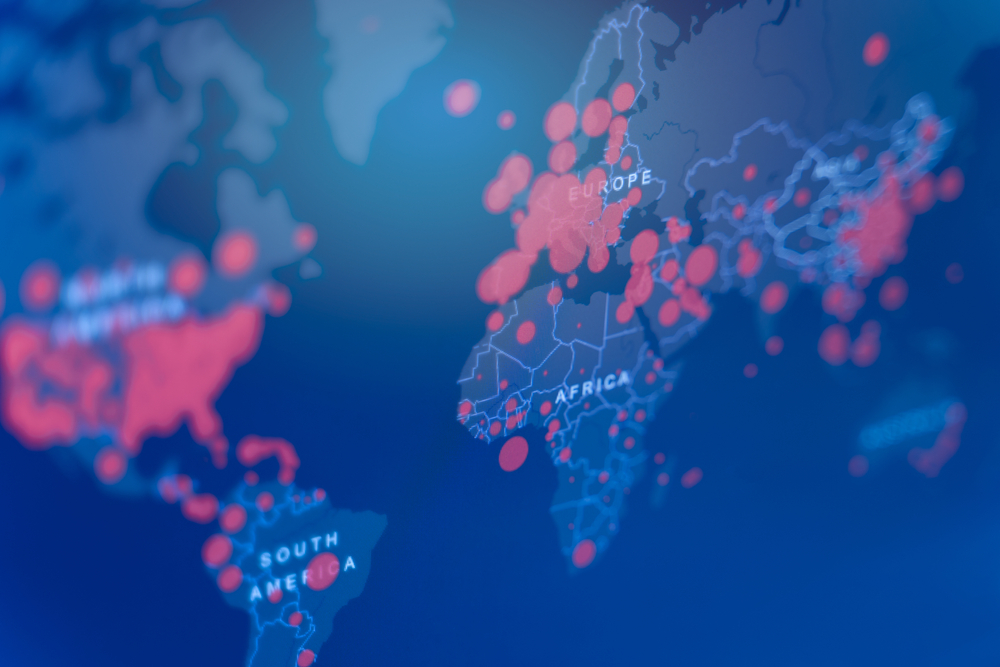International health resilience: A defining challenge
The G20 leaders’ meeting in Rome is one of the most important in recent years. If not in its history. COVID-19 is the most serious crisis since the end of the Second World War. And the leaders of the largest economies have a particular responsibility to shape the post–COVID-19 world and to coordinate international action on the major challenges in its aftermath.
I am thinking of the climate transition, of the efforts towards fair international taxation, and of the international financial solidarity to enable developing countries to catch up and to benefit from growing prosperity.
And of course, I am thinking of health – a defining issue if ever there was one, and one on which I wish to focus here.
It took COVID-19, with its almost five million deaths, for the world to realise that it was not prepared for a pandemic, which scientists have predicted for years. No country, not even the most developed, was prepared.
And yet other epidemics will occur. It is therefore now widely recognised that preparedness and response to future health crises is a major global challenge. It must be addressed through intensive international cooperation and coordination.
A new system
Initiated by the European Union and supported by many countries across all continents, the principle of an international treaty on pandemics rooted in the World Health Organization’s constitution will be the subject of a special World Health Assembly in November.
We believe that such a treaty will be the best instrument to improve global pandemic preparedness and response. The aim is to lay down the same ground rules for everyone, ensuring inclusiveness and access to financing and tools to increase capacity and resilience at the national level. This will also provide the legal framework for equitable access to countermeasures in the event of a pandemic.
We need a system that can ensure that states are mobilised at the highest level – only leaders can take the responsibility and implement these bold and urgent actions. We need to involve all the sectors concerned, well beyond the health sector alone. We have seen how much value chains, trade, industry and international public and private finance can have a decisive impact on the response to a global health crisis and its management. There are various international sectoral forums but no platform to ensure the coherence and, where necessary, urgency of an inevitably multidimensional response.
The health of the planet and the health of wildlife have justified the holding of regular Conferences of the Parties, on climate and biodiversity respectively. These COPs are the political driver and give coherence to international mobilisation. Does human health not deserve an equally robust coordination structure?
Mobilising resources
Strengthening global preparedness and response for future pandemics requires activating financial and human resources, public and private efforts involving all countries, under the auspices of a central coordinating body. It is in everyone’s interest: no country, however large or developed, can protect itself from a pandemic. This is why a new international and legally binding instrument within the framework of a strengthened WHO is the best avenue to ensure inclusive global governance, accepted by all.
In concrete terms, a treaty will set the conditions to facilitate, wherever appropriate, the creation and development of the industrial capacities needed to prevent or combat health crises. This legal instrument will also create the framework for an international system of surveillance, collection and exchange of scientific data.
This in turn will facilitate and accelerate the development and sharing of technologies or new medical or pharmaceutical products. Finally, the treaty will ensure that the new coordination on pandemics is consistent with the One Health approach, which aims in particular to reduce the risks related to food safety and zoonoses.
To sum up: the objective of such a treaty is to create a comprehensive and inclusive system that encompasses all the measures and tools necessary to prevent or fight the next global health crisis – from detecting a pathogen (a virus) to getting shots into arms. It is in the best interest of our citizens and countries, rich or poor, in line with the now recognised principle that ‘no one is safe until everyone is safe’. It is a priority for the world, and the time to act is now. I have no doubt that this is a conviction shared by the G20 leaders.












